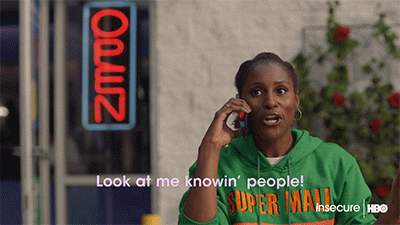As an Applied Computer Science student, co-op work terms are a mandatory part of my degree. And I realized the first work terms are extremely crucial for the direction that later ones take. The lessons I learned can pretty much be applied to any other co-op at Dal.
Your resume

Looking back, my first resume was so flawed, it’s a wonder I landed a co-op placement at all. Many students fall into the traps of pushing brevity over content, or design over functionality. The truth is, none of that matters unless your resume is over two pages long or has absolutely no colour or contrast. A simple layout does the task perfectly fine, and arguably makes better use of your time, since you’ll likely need to edit your resume more than once.
Many employers don’t actually read your resume personally until the later stages of shortlisting applicants. Applicant tracking systems (ATS) are widely used across multiple industries. This is the equivalent of handing your final exam bubble sheet over to an examiner—your answers are scanned, not manually verified. The ATS tracks keywords, which is why spending too much time on the design of your resume isn’t a great use of your time. This is also the reason employers make you manually fill out your details on their website even after you have submitted a resume to them.
Applying to the jobs

There’s strength in numbers and you haven’t applied to enough jobs. Seriously. I know 20, 30, or 40 seem like large numbers, especially compared to your friend who somehow got an interview for their first application. However, since we can’t all be that lucky, we must keep applying until there are no more positions left to apply for.
Apply to small companies and large ones alike. Look at what they’re asking for, since most employers are quite transparent about qualities they’re looking for in a candidate. Highlight these qualities, and don’t be discouraged if you don’t meet all their criteria. The applicant profiles are usually written by HR departments, and you can think of some of the more elaborate criteria as “nice-to-haves” instead of prerequisites to application. I managed to get a position that required a skill I barely possessed, yet I struck out on many positions where I was arguably overqualified.

Social media is a big part of your job hunt. Many companies and individuals will advertise positions on LinkedIn and not many other places. Keep an eye out for these opportunities, since the number of applicants is often lower. Your LinkedIn connections are also a measure of your digital networking skills, and since in-person networking events are all but gone right now, it pays off to have an active LinkedIn account. Take the time to sharpen your account profile and try to use a professional headshot and well-thought-out bio that really speaks to employers.
At your work term

Congratulations! You’ve successfully secured your first co-op work term. If you feel like a fish out of water, don’t be afraid. In-class knowledge rarely translates to real-life workplace acumen, and employers are often quite aware that the transition to a student’s first workplace can be rocky.
The solution is to observe keenly, listen and ask as much as you can. Get to know people! This is the perfect opportunity to network, even virtually. These connections can really prove useful, and at your co-op work term, you can find out truly if the field you have chosen to work in is the one for you before you dedicate more time to it.

If the work seems too complicated, seek out other co-op students. The chances are you’re not the only co-op hire. Ask them for help or, better yet, talk to your immediate manager. By the end of the work term, you should have made a lot of new connections, gotten a feel of the industry, and decided where to take your career next before you start the next work term.
Terms can be extended from four months to eight by the employer, so if this is something you’re interested in, working diligently and resourcefully can help the employer take notice. It’s important, however, to respect boundaries—especially during virtual placements. Workdays start and end at certain hours, and unless it’s been spelled out otherwise in your employment agreement, make sure phone calls, messages, and emails are kept to those hours.
And if you have any issues with anything on the job, make sure you talk to your manager or your relevant co-op office at Dal.

